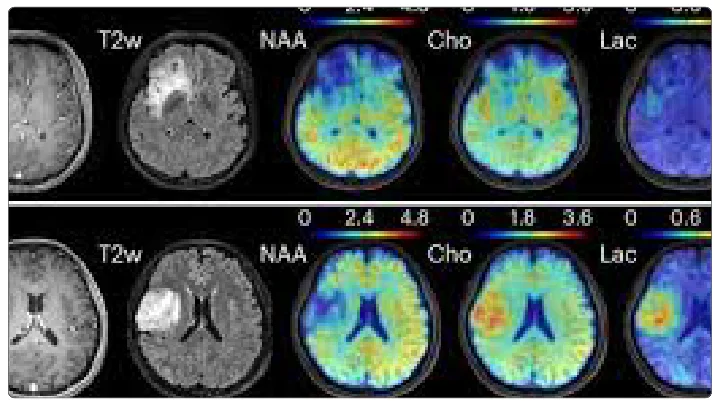Breakthrough MRI Technology Maps Brain Metabolism with Unmatched Precision
Researchers at the University of Illinois Urbana-Champaign have developed the latest technology that enables the measurement of metabolic activity in the brain using clinical MRI machines. This technology provides highly unique insights into brain function and disease, allowing clinicians and researchers to conduct detailed studies of various brain functionalities and identify potential abnormalities.

Only after a few minutes of scanning, the latest high-resolution metabolic imaging system revealed various metabolic activities and neurotransmitter levels among brain regions. The system detected metabolic alterations in brain tumors and mapped multiple sclerosis lesions.
Traditional MRI systems provide high-resolution imaging of brain structures. However, the latest technology provides detailed information regarding changes in blood flow and blood oxygen levels, which are closely connected to neural activity and are highly essential for understanding the disease and brain function.
The metabolic and physiological changes occur before structural and functional abnormalities in the brain, which traditional MRI and fMRI images cannot detect. The latest metabolic imaging will aid in the diagnosis of metabolic activity and alterations in brain functioning, which can facilitate early diagnosis and intervention at the right time in brain disease cases.
Key Highlights
- Non-Invasive High-Resolution Imaging: This technology provides high-quality brain metabolic imaging, allowing for the detection of metabolic activity with high precision and speed.
- Metabolic Imaging Will Help Detect Upcoming Diseases at an Early Stage: The system will detect alterations in brain metabolic activity and neurotransmitters as metabolic changes occur before structural and functional abnormalities become apparent, which can be detected using conventional MRI and fMRI scans at a later stage.
- Extensively Detailed Imaging: This technology measures signals from brain metabolites and neurotransmitters, as well as water molecules, a technique widely known as magnetic resonance spectroscopic imaging, which can provide intricate details of the brain and its disease condition.
- Effectively Addressing Long-Standing Technical Barriers: other technologies working on MRSI are significantly slower and time-consuming, and due to excessive noise levels, the signals received from the neurotransmitters also become unclear.
- Importance: This breakthrough will be a milestone in personalized, predictive, and precision medicine, with high-speed, high-resolution MRI technology providing better assistance in brain-related ailments through the use of this non-invasive metabolic imaging technology.
Executives’ Statements
Zhi-Pei Liang, professor of electrical and computer engineering and member of the Beckman Institute for Advanced Science and Technology at the U. of I
Understanding the brain, how it works, and what goes wrong when it is injured or diseased is considered one of the most exciting and challenging scientific endeavors of our time. MRI has played a major role in unlocking the mysteries of the brain over the past four decades. Our new technology adds another dimension to MRI's capability for brain imaging: visualization of brain metabolism and detection of metabolic alterations associated with brain diseases."
Postdoctoral researcher Yibo Zhao, the first author of the paper
“Conventional MRI provides high-resolution, detailed imaging of brain structures. Functional MRI maps brain activity by detecting changes in blood flow and blood oxygenation level, which are closely linked to neural activity. However, they cannot provide information on the metabolic activity in the brain, which is important for understanding function and disease.”